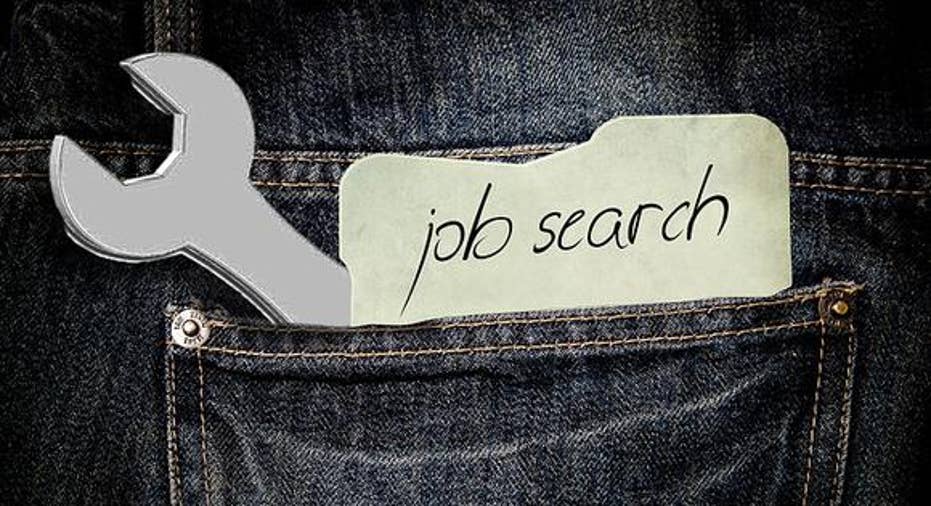Laid Off? 4 Moves to Protect Your Finances

Sometimes layoffs happen to good people. Even in an otherwise healthy economy, you could be a star employee but still manage to fall victim to downsizing. Of course, the worst thing about getting laid off is that it strips you of any control you may have otherwise had over your finances, and in the absence of a crystal ball, it's hard to know how long you'll be out of work. Here are some things you can do immediately to protect your finances when faced with unemployment.
IMAGE SOURCE: PIXABAY.
1. Fight for a better severance packageWhen your employer hands you a separation agreement offering you a certain sum of money upon your departure, you may be inclined to quickly sign on the dotted line. Don't. Consider your initial severance package an opening bid, and try to get your employer to do better. Companies don't offer severance out of the goodness of their collective hearts; they do so to protect their own interests. Often, when you sign a separation agreement (the document that outlines and accompanies a severance payment), there's a whole list of things you're agreeing not to do (namely, suing your company for unlawful termination). Your company wants you to sign that agreement and take that payment, so don't be afraid to squeeze a little more money out of the deal. It'll go a long way in the absence of a paycheck.
2. File for unemploymentThough the rules of unemployment vary from state to state, if you worked full-time and weren't fired for cause, you should file for unemployment the minute you stop getting paid by your former employer. Keep in mind that some states impose a waiting period for receiving benefits once a claim is filed, so the sooner you act, the sooner those payments will start rolling in. Your ultimate benefit amount will depend on how much you earned, but know that every state has a maximum. New York's, for example, is $420 per week. While your unemployment benefits won't completely compensate for your missing paycheck, they can help you stay afloat as you search for your next opportunity.
3. Get health insuranceIf you got health insurance through your former company, you'll need to figure out how to obtain coverage now that you're no longer employed. Companies with 20 employees or more are required to offer COBRA coverage, which allows workers to retain their health benefits once their employment ends. But don't celebrate just yet, because taking advantage of COBRA generally means paying 100% of your premium for as long as you hold onto your old company's plan. Remember, just because you paid $150 a month for insurance while you were employed doesn't mean that your employer didn't pick up, say, the $350 balance. In many cases, COBRA won't be the lowest-cost insurance option out there. There's a good chance you'll be better off shopping for a new plan on the Obamacare marketplace. But don't delay: If you fail to obtain insurance, you could pay a penalty of $695 per uninsured adult and $347.50 per uninsured child, or a family maximum of $2,085. Plus, if you run into a health issue while uninsured, the resulting bills could be catastrophic.
4. See what's in your emergency fund, and adjust your budgetIdeally, you should have an emergency fund with enough money to cover at least three months of living expenses. Review that balance against your current budget and then plan carefully for how you're going to spend it. You may need to cut back or eliminate negotiable expenses, like cable TV, new clothing purchases, or your gym membership, until you once again have a steady source of income. Don't have an emergency fund? Look into your most cost-effective options for borrowing money before charging up a storm on your credit card. If you're a homeowner, for example, a home equity loan or line of credit might allow you to borrow at a much lower rate than what your credit card company will charge.
While getting laid off can be both a monetary and emotional blow, if it happens to you, don't panic. Focus on the things you need to do to protect yourself financially, and start cranking out those cover letters and job applications. Though you may find it difficult to push yourself when you're down, the less time you spend wallowing, the greater your chances of snagging a new job and moving forward as quickly as possible.
The article Laid Off? 4 Moves to Protect Your Finances originally appeared on Fool.com.
Copyright 1995 - 2016 The Motley Fool, LLC. All rights reserved. The Motley Fool has a disclosure policy.



















